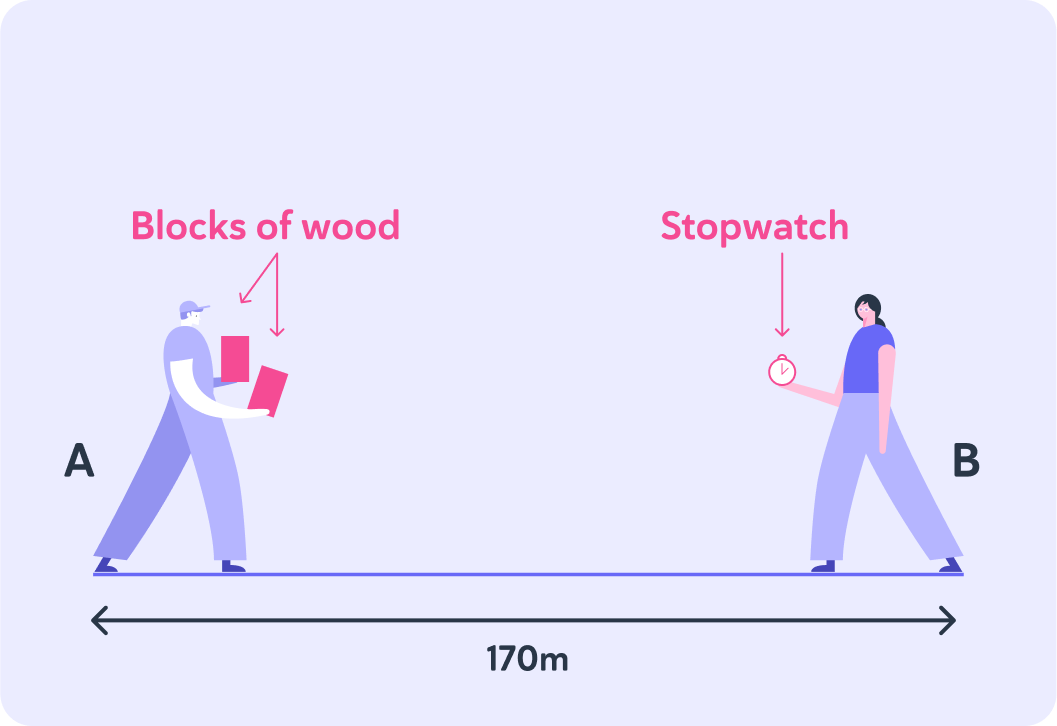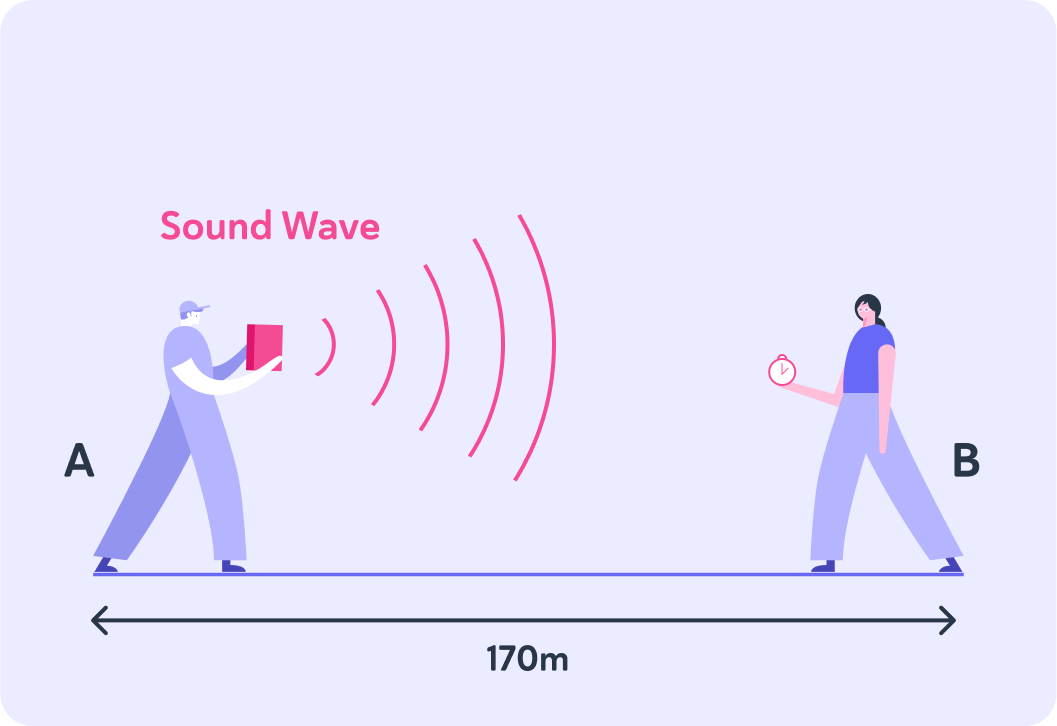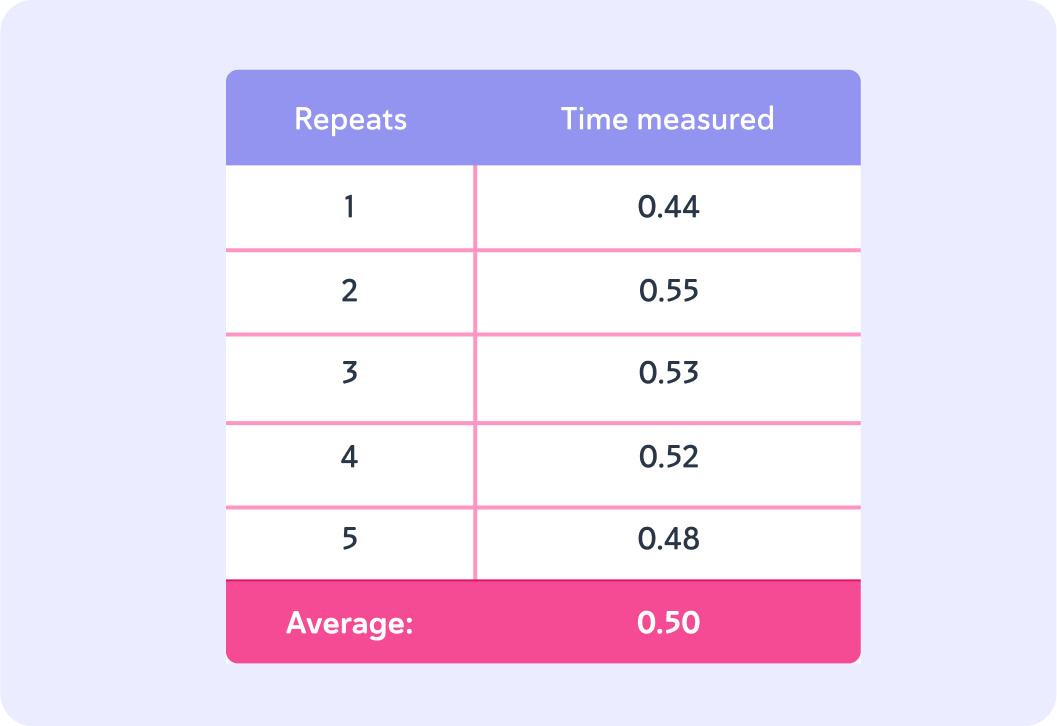YOU ARE LEARNING:
Speed of Sound

Speed of Sound
We can measure the speed of sound by making use of the equation v=d/t. The speed of sound depends on the density and temperature of the medium it is travelling through.
How fast do you think sound travels?

To calculate the speed of sound, you need the equation for velocity v in terms of distance d and time t. What is that equation?

So to calculate the speed of sound, you need to measure two things
The distance the sound has travelled. The time it took the sound to travel.

You first decide on a distance
Pick two points that are at least 150m apart, but within sight of each other.

Then you create a sound
Person A should create a loud sound, for example by banging two blocks of wood together.
Person B has a stopwatch and signals to person A when to start.

Then you measure the time
Person B should start the stopwatch when they see the two blocks hit each other. They should stop the stopwatch again when they actually hear ** the sound.
You should repeat this step at least 10 times.

Finally, you calculate the speed, using v=td
For example, if d=170m and the time is measured to be 0.50s on average, you work out the speed like this v=0.5170=340m/s

By the way, why did person A and B have to be at least 150 metres apart?

How to improve this experiment
Increase the distance
If the distance is too short, you will see and hear the blocks banging together more or less instantly. If you increase the distance, the starting and stopping of the stopwatch will be less frantic.
Repeat the experiment lots of times
This can help iron out the impact of various things that might influence the experiment, for example a gust of wind.
Change as little as possible
It is important that nothing changes in the experiment when repeating it. For example, it should be the same person holding the stopwatch every time.
The speed of sound depends on the medium the sound waves are travelling through
In which medium will sound travel faster?

Sound waves travel faster in metal than in air or water, because the particles in metal are closer together
The speed of sound in air is around 330 m/s
The speed of sound in water is around 1500m/s
The speed of sound in steel is around 5000m/s
Will sound travel faster in hotter or colder temperature?

Particles in a hotter medium has more energy
That means that they will be able to vibrate faster, so sound will travel faster.
Summary
The speed of sound is roughly 330 m/s in air
But the speed of sound is different for different media.
The denser and/or hotter the medium, the faster sound will travel
In denser media, particles are closer together. In hotter media, particles have more energy, so they can vibrate faster.
You can measure and calculate the speed of sound
All you need is a stopwatch, really.
You should always remember to be as accurate as possible
Do the experiment at a long enough distance that you can both start and stop the stopwatch at the right time.
Do the experiment many times.
Change as little as possible every time.
